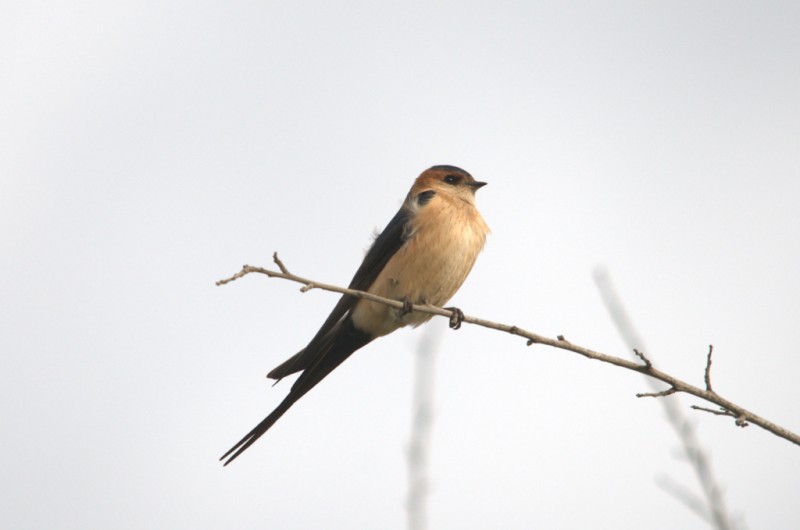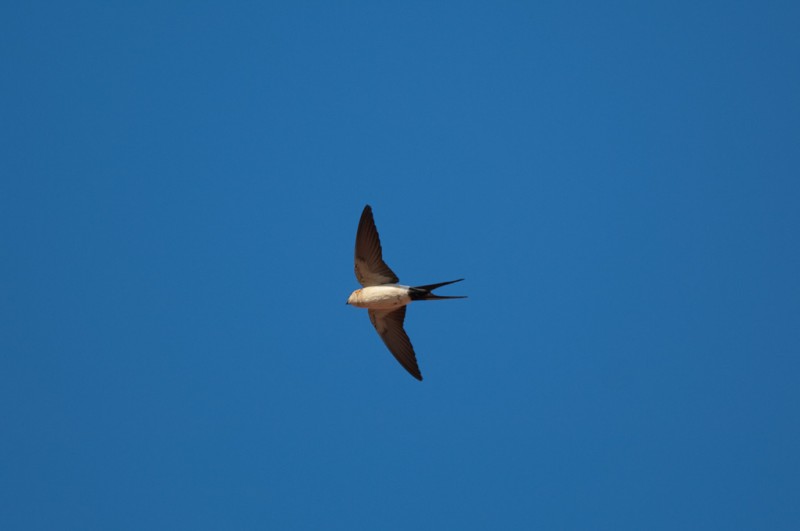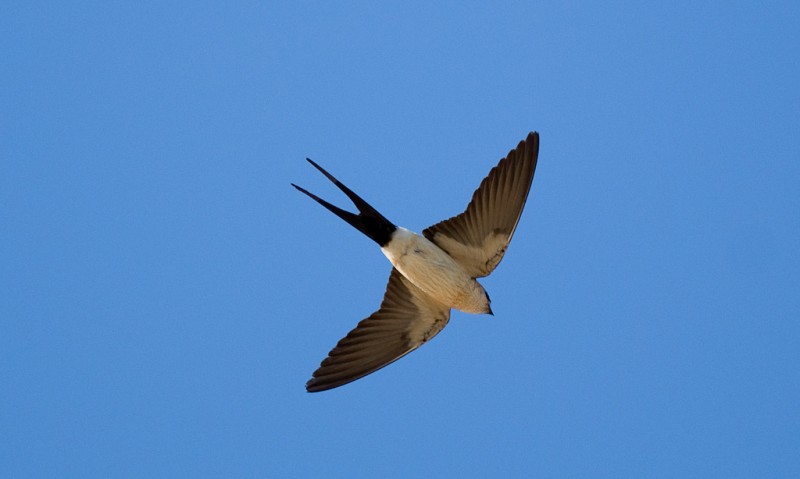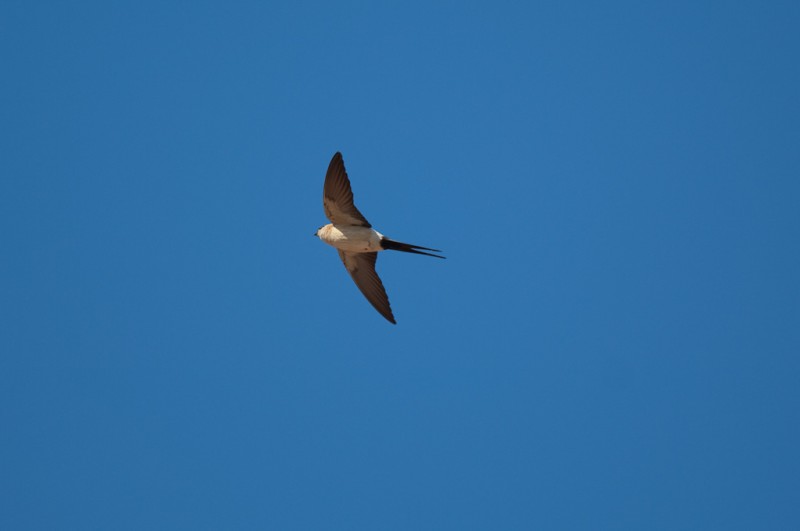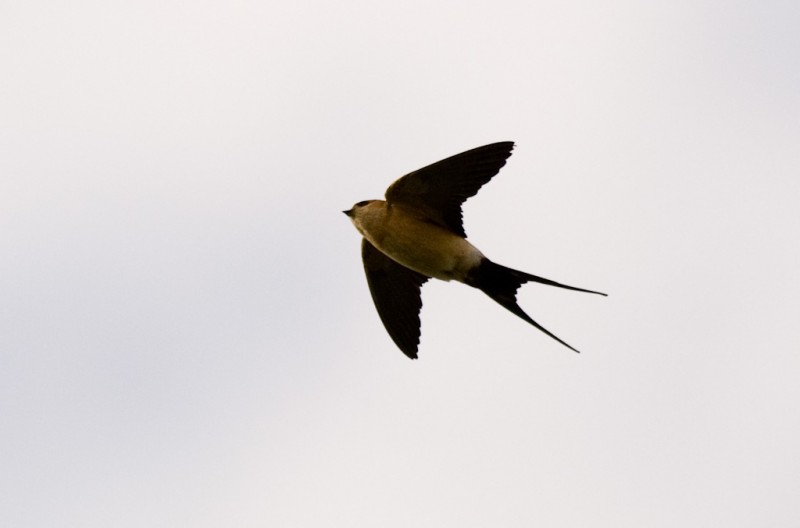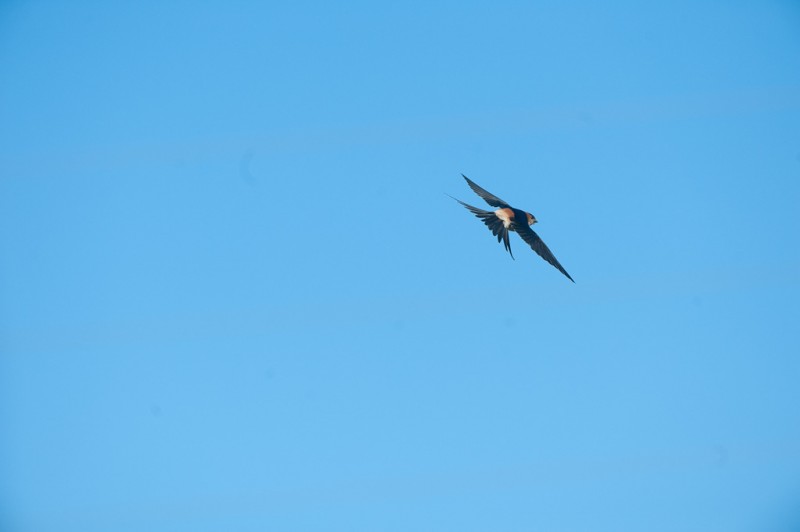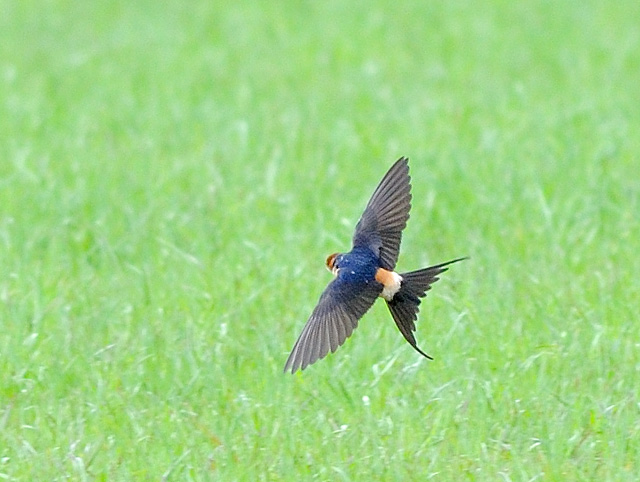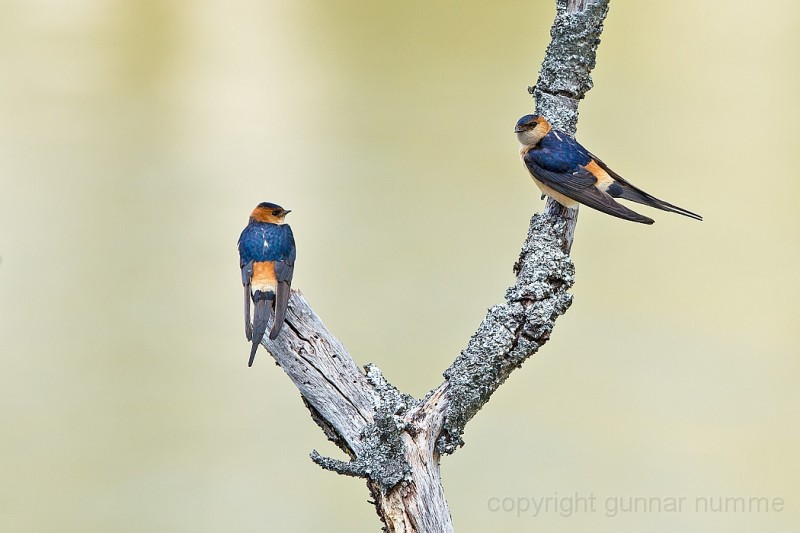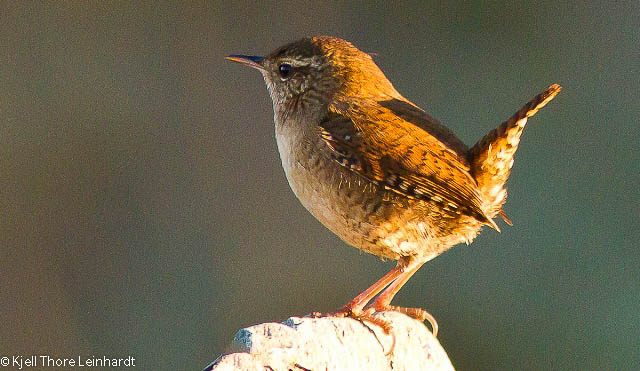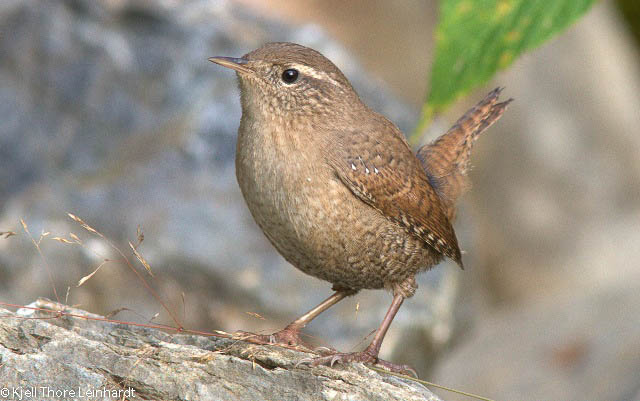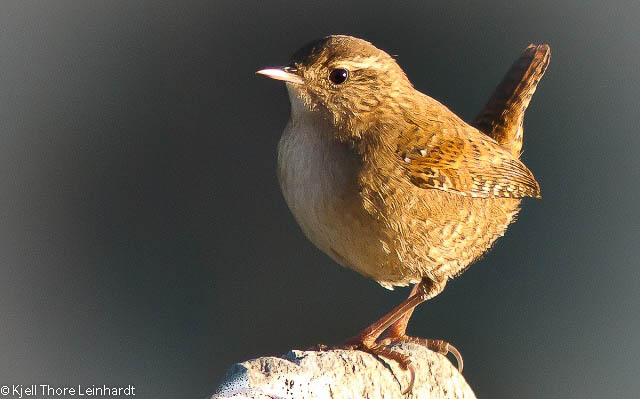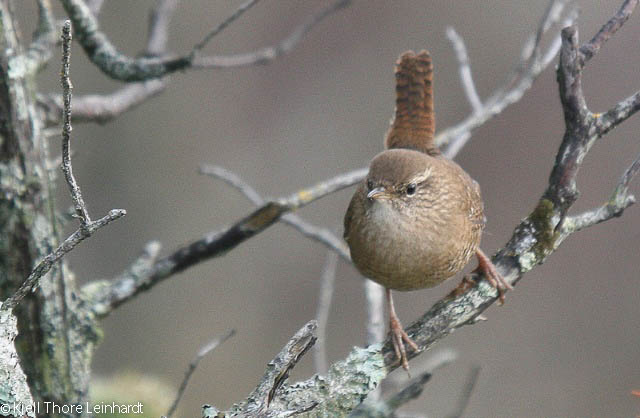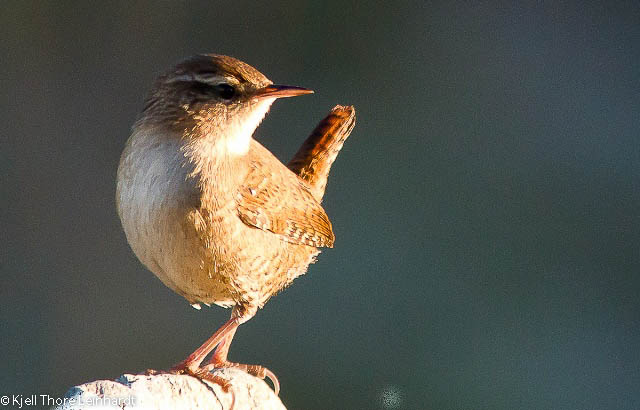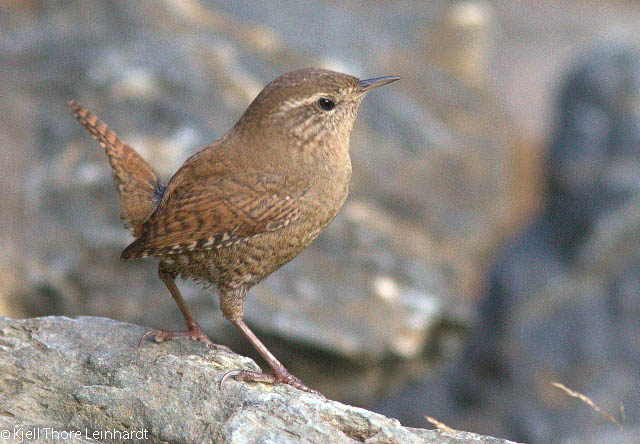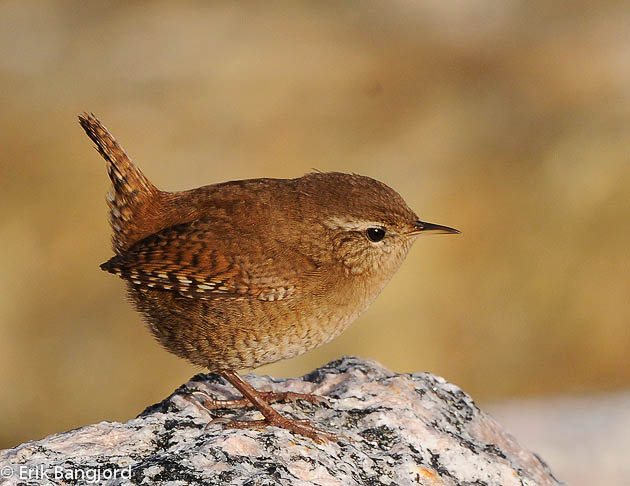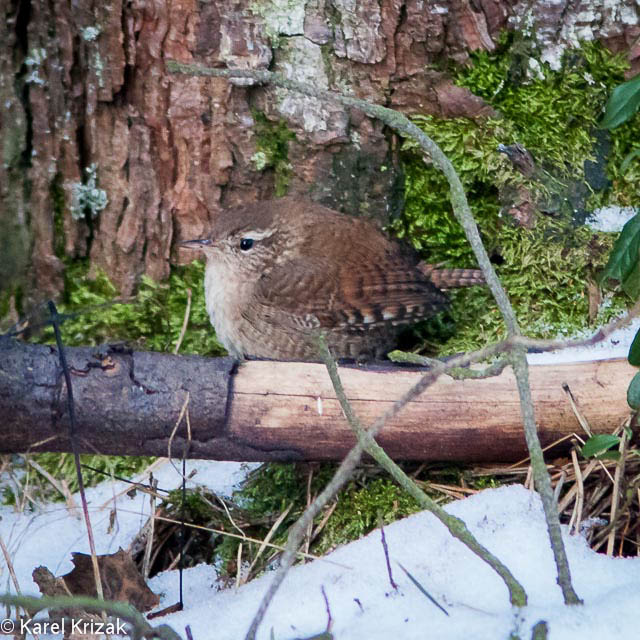Red-rumped Swallow (Cecropis daurica)
Wren (Troglodytes troglodytes)
Differs from Barn Swallow in all plumages by pale throat and black under tail coverts, which are visible at greater distance than the red rump. Rufous cheeks and collar. Underparts finely streaked, giving the bird a slightly "dirty" look from a distance, with less contrast to the upperparts than in Barn Swallow. Immature birds with short streamers and buff cheeks and rump. Build more compact than Barn Swallow, with shorter bill, rounded wings and slightly shorter streamers. Flight slower and with more frequent gliding.
Sound:Less vocal than Barn Swallow. Song slower, and less energetic. Each phrase starts with a few staccato notes, leading to a short, twittering sequence of a few seconds length, with some drawn notes. Timbre is metallic and "broken", and quite diagnostic.
Song:
Distribution:
Wikipedia: map (se also Xeno-canto below)
Ecology:Birdlife ecology
Links:
Observation.org Latest observations
Image search Flickr NB! May give other species
CCUnmistakable. Very small, mouselike bird with short rounded wings, short neck and upright tail. Upperparts chestnut brown and finely barred. Underparts light buff. Forages in thick undergrowth and low bushes, crevices and holes for insects. Easily overlooked, but betrays its presence by its big voice. One of the smallest bird in northern Europe.
Sound:Song surprisingly loud. A high-pitched stream of clear notes resembling Robin and Dunnock in timbre. Differs from those in showing frequent shifts in pitch with much larger register than Dunnock, and by the unique, numerous, interspersed long trills. Warning call a short hard "teck", like banging two rocks together. Often repeated in series when excited to form machine-gun-like "firing".
Alarm call, song:
Distribution:
Wikipedia: map (se also Xeno-canto below)
Ecology:Birdlife ecology
Links:
Observation.org Latest observations
Image search Flickr NB! May give other species
CC
 English
English Albanian
Albanian
 Armenian
Armenian
 Bulgarian
Bulgarian
 Catalan
Catalan
 Croatian
Croatian
 Czech
Czech
 Danish
Danish
 Dutch
Dutch
 Finnish
Finnish
 French
French
 Georgian
Georgian
 German
German
 Greek
Greek
 Hungarian
Hungarian
 Italian
Italian
 Latvian
Latvian
 Lithuanian
Lithuanian
 Macedonian
Macedonian
 Norwegian
Norwegian
 Polish
Polish
 Portuguese
Portuguese
 Romanian
Romanian
 Russian
Russian
 Sami : Lule sami
Sami : Lule sami
 Sami : North sami
Sami : North sami
 Sami : South sami
Sami : South sami
 Scientific names
Scientific names
 Serbian
Serbian
 Spanish
Spanish
 Swedish
Swedish
 Ukrainian
Ukrainian


